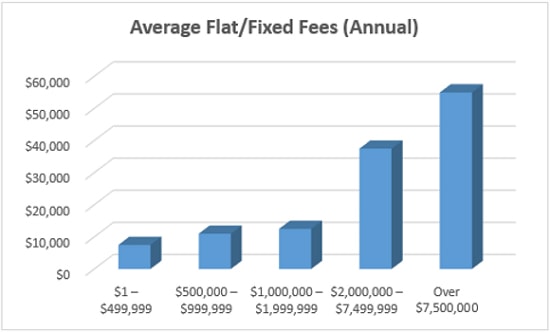
A consultant associate's salary is comparable to that of other similar jobs. Showing your boss that you are performing well can increase your salary. The more satisfied the boss is, the more likely they are to give you a raise. You should document your successes and be prepared for a review.
Base salary
The Base Consultant Associate salary is the salary a consulting associate earns before taxes and benefits. This salary excludes any additional compensation such as commissions or profit sharing. It is important to understand that the total pay of an Associate Consultant varies widely based on several factors, including location and years of experience.
A bachelor's degree is required for most associate consultant positions. They may specialize in various fields, such as computer science, engineering, or business administration. Other degrees may prove useful, including a doctorate, which can boost your salary and improve your career prospects.

Competitive starting salary
Consultant associates typically start at 26 to 30 L with a bonus component. This bonus value can range from 50 to 150%, depending on the MBB. Consulting firms typically hire specialist and experienced students from outside of their target schools. McKinsey & Company's most recent MBA intake had 19% direct hires. The analysts came from over 370 universities.
Although consulting salaries can be flexible, sign bonuses are often paid to new employees when they sign up with the firm. Your sponsoring firm might also offer you additional bonus payments. These offers may sound appealing but you should look at other possibilities before you commit.
Experience required
As a consultant, you will need experience and education to be successful. A bachelor's degree would be the best, although some associate consultants have a masters. It is possible to not make the grade if your high school diploma is all you have. Many associate consultants hold degrees in business, finance or computer science.
More money can be earned if you are a consultant. However, experience does not always determine pay. Salary will be affected by education and certifications. Check out the Professional Salary Report for more information.

Future margins
The future margins in the consulting industry are at risk from rising salaries. Despite increasing revenue and steady M&A activity, the future inflation in salaries is still a threat to the consulting industry. Even though firms have been able reduce their operational costs to protect their margins, it is not enough. Firms might also consider hiring pre-MBA candidates over more expensive MBAs.
Average salary in your state
An Associate Consultant should earn around $84,047 each year. There are, however, differences among states. The District of Columbia pays an average of $133,000 per year. Associate Consultants who make the most are paid close to $133,000 a year while those at the bottom earn about $101,000. The average salary for a sales consultant should be $50,000.
FAQ
What happens when the consultant finishes the job?
After the consultant completes their work, he/she will submit a final summary of the results. This report will include project timelines and deliverables as well as any other relevant information.
After that, you'll go through the report and decide if it meets your expectations. If you are not satisfied with the consultant's report, you have the option to ask for modifications or to terminate your contract.
What industries use consultants
There are many types. Some focus on one particular type of business while others specialize in more than one area.
While some consultants only work for private companies, others represent large corporations.
Many consultants also work internationally to assist companies from all corners of the globe.
What skills are necessary for consulting?
As a consultant, you should have both strong interpersonal skills and analytical skills. This is important because you are working on projects where you may not know exactly what you are doing. This is a must because you need to learn how quickly you can manage people.
Communication skills are essential. Most clients expect an answer within 24 hours. If they don’t hear from you within 24 hours, they assume you don’t care. It's crucial to keep them informed and make sure they understand everything.
Why would a company hire consultants?
A consultant provides expert advice on how to improve business performance. They aren't there to sell your products.
Consulting helps companies make better decisions. They provide sound analysis and offer suggestions for improvement.
Consultants often work with senior management to help them understand how to succeed.
They also provide leadership training and coaching to ensure employees develop the skills necessary to perform at peak levels.
They may advise businesses on reducing costs, streamlining processes, and increasing efficiency.
Do I have to pay tax on consulting income
Yes. You will have to pay taxes on your consulting profits. This amount will depend on how much you earn each year.
You can also claim expenses if you are self-employed. This includes rent, childcare, food, and transportation.
But you won't be able to deduct interest payments on loans, vehicle depreciation, or the cost of equipment.
You can only claim back 25% of your expenses if you earn less than PS10,000 a year.
However, you might still have to pay tax if your earnings are higher than the threshold. This depends on whether you are an employee or contractor.
Employees are generally taxed through PAYE (pay as you earn) and contractors through VAT.
What are the benefits of consulting?
Consultants can often choose the hours and topics they work on.
This allows you to work wherever and whenever you want.
It means that you can change your mind easily without worrying about losing your money.
Finally, you are able to manage your income and make your own schedule.
What does it cost to hire an expert?
There are many factors that go into the cost of hiring a consultant. These factors include:
-
Project size
-
Time frame
-
Scope of work
-
Fees
-
Deliverables
-
Other factors to consider include location, experience, and other considerations.
Statistics
- According to IBISWorld, revenues in the consulting industry will exceed $261 billion in 2020. (nerdwallet.com)
- Over 50% of consultants get their first consulting client through a referral from their network. (consultingsuccess.com)
- WHY choose me: Why your ideal client should choose you (ex: 10 years of experience and 6-week program has helped over 20 clients boost their sales by an average of 33% in 6 months). (consultingsuccess.com)
- "From there, I told them my rates were going up 25%, this is the new hourly rate, and every single one of them said 'done, fine.' (nerdwallet.com)
- Over 62% of consultants were dissatisfied with their former jobs before starting their consulting business. (consultingsuccess.com)
External Links
How To
How can I find a good consultant for my business?
It is important to understand what you are looking for in a consultant before you can find one. What do you need them to do for your website? You may want them optimizing your site to rank higher for search engines. Maybe you are looking for someone to point out any problems with your current web host. You should know the type of services that you require before you start looking at other companies. While there are many consultants that claim to be able provide these services for you, not all of them will. How do you choose the right consultant? Here are some things to consider when picking a consultant:
-
Refer to others. This is the best method to find a consultant. You don't want to hire someone you've never heard of before because you'll likely pay too much. However, you shouldn't work with someone with poor reputations. If you have the good fortune to get referrals from trusted people, great! You can check online reviews even if they don't refer you. You can find testimonials and case studies from clients who have used your service.
-
Ask around. Many people aren't aware that they could benefit from hiring a consultant. They think that since they're currently doing fine, they don't need to make changes. However, this is usually untrue. Even if you're getting great results right now, chances are that you haven't been keeping up with new trends or technologies. Your business could be missing out if it relies on outdated methods. It's worth asking your friends and family for recommendations to help you find the right consultant.
-
Check their qualifications. You don't need to worry about whether they are building a website or an eCommerce store worth millions. It doesn't matter if they are qualified for the task or not; make sure they are knowledgeable in the field.
-
Find out the type of projects they specialize. While you might assume that everyone can handle everything, this isn't true. You may need to have specific training or education in certain areas. A developer who is a specialist in Drupal would not be able to help you build a WordPress theme. This is true for programming languages and graphic design. Ask the designer what kind of projects they have worked on in the past.
-
Find out what their charges are. You don't want a consultant who charges too much. However, you don't need to pay too much. Consultants come in many sizes and shapes. While some consultants charge an hourly rate, others bill per project. It's cheaper to know upfront what you are paying than later.
-
Learn what they offer. Are they willing to provide free consultations? Will they give you advice on how to set up your own system? Are they able to guarantee that your site will rank better after working with you? If you don't like what you hear during your consultation, you should feel confident knowing you can cancel without penalty.
-
Find out if the company offers discounts for several months or years. Many consultants offer discounts for longer periods. It is not necessary to commit to an entire year. However, you could still benefit from any deals offered by the consultants.